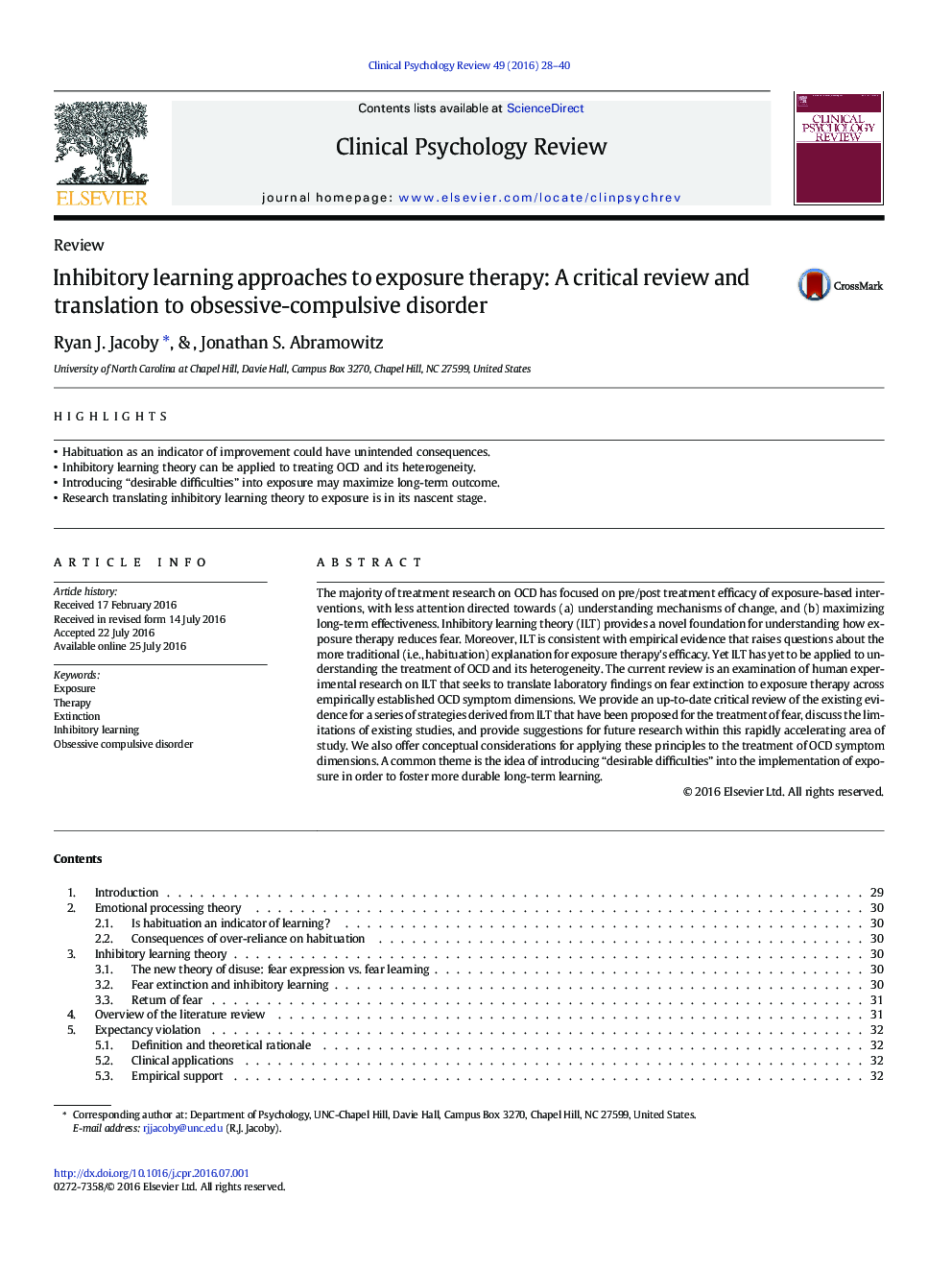| Article ID | Journal | Published Year | Pages | File Type |
|---|---|---|---|---|
| 903557 | Clinical Psychology Review | 2016 | 13 Pages |
•Habituation as an indicator of improvement could have unintended consequences.•Inhibitory learning theory can be applied to treating OCD and its heterogeneity.•Introducing “desirable difficulties” into exposure may maximize long-term outcome.•Research translating inhibitory learning theory to exposure is in its nascent stage.
The majority of treatment research on OCD has focused on pre/post treatment efficacy of exposure-based interventions, with less attention directed towards (a) understanding mechanisms of change, and (b) maximizing long-term effectiveness. Inhibitory learning theory (ILT) provides a novel foundation for understanding how exposure therapy reduces fear. Moreover, ILT is consistent with empirical evidence that raises questions about the more traditional (i.e., habituation) explanation for exposure therapy's efficacy. Yet ILT has yet to be applied to understanding the treatment of OCD and its heterogeneity. The current review is an examination of human experimental research on ILT that seeks to translate laboratory findings on fear extinction to exposure therapy across empirically established OCD symptom dimensions. We provide an up-to-date critical review of the existing evidence for a series of strategies derived from ILT that have been proposed for the treatment of fear, discuss the limitations of existing studies, and provide suggestions for future research within this rapidly accelerating area of study. We also offer conceptual considerations for applying these principles to the treatment of OCD symptom dimensions. A common theme is the idea of introducing “desirable difficulties” into the implementation of exposure in order to foster more durable long-term learning.
